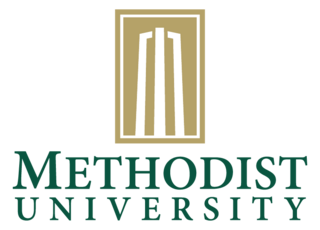Related Research Articles
Industrial and organizational psychology "focuses the lens of psychological science on a key aspect of human life, namely, their work lives. In general, the goals of I-O psychology are to better understand and optimize the effectiveness, health, and well-being of both individuals and organizations." It is an applied discipline within psychology and is an international profession. I-O psychology is also known as occupational psychology in the United Kingdom, organisational psychology in Australia and New Zealand, and work and organizational (WO) psychology throughout Europe and Brazil. Industrial, work, and organizational (IWO) psychology is the broader, more global term for the science and profession.
Psychology is the scientific study of mind and behavior. Its subject matter includes the behavior of humans and nonhumans, both conscious and unconscious phenomena, and mental processes such as thoughts, feelings, and motives. Psychology is an academic discipline of immense scope, crossing the boundaries between the natural and social sciences. Biological psychologists seek an understanding of the emergent properties of brains, linking the discipline to neuroscience. As social scientists, psychologists aim to understand the behavior of individuals and groups.

A psychologist is a professional who practices psychology and studies mental states, perceptual, cognitive, emotional, and social processes and behavior. Their work often involves the experimentation, observation, and interpretation of how individuals relate to each other and to their environments.
A Bachelor of Applied Science is an undergraduate academic degree of applied sciences.
Applied psychology is the use of psychological methods and findings of scientific psychology to solve practical problems of human and animal behavior and experience. Educational and organizational psychology, business management, law, health, product design, ergonomics, behavioural psychology, psychology of motivation, psychoanalysis, neuropsychology, psychiatry and mental health are just a few of the areas that have been influenced by the application of psychological principles and scientific findings. Some of the areas of applied psychology include counseling psychology, industrial and organizational psychology, engineering psychology, occupational health psychology, legal psychology, school psychology, sports psychology, community psychology, neuropsychology, medical psychology and clinical psychology, evolutionary psychology, human factors, forensic psychology and traffic psychology. In addition, a number of specialized areas in the general area of psychology have applied branches. However, the lines between sub-branch specializations and major applied psychology categories are often mixed or in some cases blurred. For example, a human factors psychologist might use a cognitive psychology theory. This could be described as human factor psychology or as applied cognitive psychology. When applied psychology is used in the treatment of behavioral disorders there are many experimental approaches to try and treat an individual. This type of psychology can be found in many of the subbranches in other fields of psychology.

National Louis University (NLU) is a private nonprofit university with its main campus in Chicago, Illinois. NLU enrolls undergraduate and graduate students in more than 60 programs across its four colleges. It has locations throughout the Chicago metropolitan area as well as a regional campus in Tampa, Florida, where it serves students from 13 counties in that state’s central region.
The New York UniversitySteinhardt School of Culture, Education, and Human Development is the education school of New York University. The school was founded as the School of Pedagogy in 1890. Prior to 2001, it was known as the NYU School of Education.
Richard D. Arvey is an American psychology professor.
Master of Professional Studies (MPS) is a type of master's degree concentrated in an applied field of study. MPS degrees are often interdisciplinary. While Master of Arts and Master of Science degree programs tend to focus on theory and research, Master of Professional Studies degrees tend to emphasize practical skills designed for current and aspiring professionals, including post-bachelor and post-graduate students, and often require some amount of fieldwork or internship to complement classroom learning.

Methodist University is a private university that is affiliated with the North Carolina Annual Conference of the United Methodist Church and located in Fayetteville, North Carolina. It is accredited by the Southern Association of Colleges and Schools Commission on Colleges.
A mental health professional is a health care practitioner or social and human services provider who offers services for the purpose of improving an individual's mental health or to treat mental disorders. This broad category was developed as a name for community personnel who worked in the new community mental health agencies begun in the 1970s to assist individuals moving from state hospitals, to prevent admissions, and to provide support in homes, jobs, education, and community. These individuals were the forefront brigade to develop the community programs, which today may be referred to by names such as supported housing, psychiatric rehabilitation, supported or transitional employment, sheltered workshops, supported education, daily living skills, affirmative industries, dual diagnosis treatment, individual and family psychoeducation, adult day care, foster care, family services and mental health counseling.
Occupational health psychology (OHP) is an interdisciplinary area of psychology that is concerned with the health and safety of workers. OHP addresses a number of major topic areas including the impact of occupational stressors on physical and mental health, the impact of involuntary unemployment on physical and mental health, work-family balance, workplace violence and other forms of mistreatment, psychosocial workplace factors that affect accident risk and safety, and interventions designed to improve and/or protect worker health. Although OHP emerged from two distinct disciplines within applied psychology, namely, health psychology and industrial and organizational psychology, for a long time the psychology establishment, including leaders of industrial/organizational psychology, rarely dealt with occupational stress and employee health, creating a need for the emergence of OHP. OHP has also been informed by other disciplines, including occupational medicine, sociology, industrial engineering, and economics, as well as preventive medicine and public health. OHP is thus concerned with the relationship of psychosocial workplace factors to the development, maintenance, and promotion of workers' health and that of their families. The World Health Organization and the International Labour Organization estimate that exposure to long working hours causes an estimated 745,000 workers to die from ischemic heart disease and stroke in 2016, mediated by occupational stress.

The Autonomous University of Tlaxcala is a Mexican public university based in the state of Tlaxcala. It is currently ranked among the best universities in the United Mexican States and Latin America.

The University of the Philippines Manila College of Arts and Sciences (CAS) is one of the nine-degree granting units of the University of the Philippines Manila. It is the largest college by population of UP Manila.

Occupational stress is psychological stress related to one's job. Occupational stress refers to a chronic condition. Occupational stress can be managed by understanding what the stressful conditions at work are and taking steps to remediate those conditions. Occupational stress can occur when workers do not feel supported by supervisors or coworkers, feel as if they have little control over the work they perform, or find that their efforts on the job are incommensurate with the job's rewards. Occupational stress is a concern for both employees and employers because stressful job conditions are related to employees' emotional well-being, physical health, and job performance. The World Health Organization and the International Labour Organization conducted a study. The results showed that exposure to long working hours, operates through increased psycho-social occupational stress. It is the occupational risk factor with the largest attributable burden of disease, according to these official estimates causing an estimated 745,000 workers to die from ischemic heart disease and stroke events in 2016.
The College of Science at Virginia Tech contains academic programs in eight departments: biology, chemistry, economics, geosciences, mathematics, physics, psychology, and statistics, as well as programs in the School of Neuroscience, the Academy of Integrated Science, and founded in 2020, an Academy of Data Science. For the 2018-209 academic year, the College of Science consisted of 419 faculty members, and 4,305 students, and 600 graduate students. The college was established in July 2003 after university restructuring split the College of Arts and Sciences, established in 1963, into two distinct colleges, the other half becoming the College of Liberal Arts and Human Sciences. Lay Nam Chang served as founding dean of the College of Science from 2003 until 2016. In 2016, Sally C. Morton was named dean of the College of Science. Morton served in that role until January 2021, when she departed for Arizona State University and Ronald D. Fricker—senior associate dean and professor in the Department of Statistics—was named interim dean of the College. In February 2022, Kevin T. Pitts was named the third official dean of the College of Science.
A Bachelor of Forensic Psychology is a type of postgraduate academic Bachelor's degree awarded by universities in many countries. This degree is typically studied for in Forensic psychology.
Walter Van Dyke Bingham (1880–1952) was an applied and industrial psychologist who made significant contributions to intelligence testing. A pioneer in applied psychology, Bingham got his start in experimental psychology, receiving his Ph.D. at the University of Chicago under James R. Angell. Bingham went from Dartmouth in 1915 to organize the Division of Applied Psychology at the Carnegie Institute of Technology. When war came to the United States, Bingham was recruited by Robert Yerkes as a member of a small group that developed the Army Alpha and Beta tests. During World War I Bingham served as executive secretary of the committee on classification of personnel in the U.S. Army, and later in the war served as lieutenant colonel in the Personnel Branch of the Army General Staff. From 1940 to 1947 Bingham was chief psychologist of the Adjutant General's Office of the War Department, serving as consultant or advisor to the Surgeon General, the Army General Staff, and the Secretary of Defense. Walter Bingham's contribution on the army classification methods paved the development of the field of industrial psychology. Bingham carried out editorial responsibilities for several journals and was the author of over 200 articles and books. His "Aptitude and Aptitude Testing" (1937/1942) is a classic in the field.

Ruth Kanfer is a psychologist and professor at Georgia Institute of Technology in the area of Industrial and Organizational Psychology. She is best known for her research in the fields of motivation, goal setting, self-regulation, job search, adult learning, and future of work. Kanfer has received numerous awards for her research contributions including the American Psychological Association Distinguished Scientific Award for an Early Career Contribution in Applied Research in 1989, the Society for Industrial and Organizational Psychology (SIOP) William R. Owens Scholarly Achievement Award in 2006 and the SIOP Distinguished Scientific Contributions Award in 2007. Ruth Kanfer has authored influential papers on a variety of topics including the interaction of cognitive abilities and motivation on performance, the influence of personality and motivation on job search and employment. and a review chapter on motivation in an organizational setting.
References
- ↑ "Industrial/Organizational Psychology Specialization : About the Program : Psychology, BS : Department of Psychology : College of Arts and Sciences : Barry University, Miami Shores, Florida". Barry.edu. Retrieved 2013-10-21.
- ↑ "BA/MS in Industrial/Organizational Psychology | Psychology | Undergraduate Majors | Academics | DePaul University". Csh.depaul.edu. Archived from the original on 2013-10-21. Retrieved 2013-10-21.
- ↑ "Bachelor of Arts in Applied Psychology Organizational Psychology". Florida Tech . Retrieved 2013-10-21.